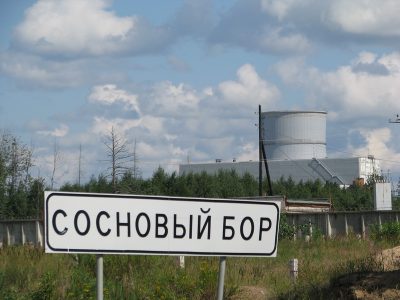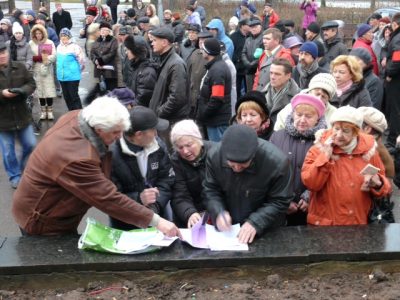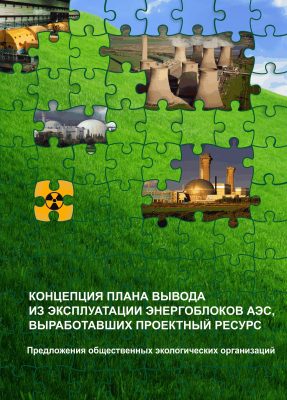1. Social aspects of decommissioning
The solution of social problems during NPP decommissioning in Russia is one of the most important and complex tasks. Its acuteness is explained by the fact that Russian nuclear neighborhoods grew around and depend on the NPP, which formed them. It means that all social infrastructure is run on the taxes paid by the company. As a rule, such cities do not have alternative work places corresponding to the qualification level of the workers employed at the power unit taken out of operation.
Most of the NPP operators have specialized educations in the field of nuclear physics and reactor technologies. If after the plant shutdown they are not involved in reactor dismantling and RW management activities, they will most likely experience difficulties with employment and possibly develop psychological problems.
Russian nuclear towns often keep traditions dating back to the times of the Soviet Union, i.e. they are closed to public access. Lately such admission restrictions have been justified by the protection of NPPs from possible terrorist attacks. In this way, the NPP shutdown in such cities is not only the loss of thousands of work places for qualified specialists, but also a blow to the municipal infrastructure.
In this situation the decision-makers, social workers, trade unions and the general public of NPP satellite towns faces the two tasks on providing:
social protection for personnel working at the closed power unit, which can include the alternative career planning, opportunity to get education for a different job, earlier pension threshold, opening of the "Third-age University”;
parallel (non-nuclear) economic development of the nuclear towns.
For solving the social adaptation problems it is useful to evalute the experience of other countries. This section proposes certain steps in this direction; they are based on the decommissioning experience in Germany and Lithuania. This experience has an added value, because it was acquired during the decommissioning of power units similar to Russian ones. Ignalina and Leningrad NPPs have RBMK units, and NPP Nord (Greifswald) and Kola NPP- power units with VVER-440 reactors.
Beside that nuclear satellite towns in Lithuania and Germany are very similar in size to Russian ones. The plant personnel in the three countries were educated in the same higher educational institutions of the former USSR.
In this way, the social adaptation experience in Lithuania and Germany can be considered
as a model, which can be adapted to Russian conditions.

Role of the Plant Workers' Council
The Council of the NPP workers can be a key player in the solution of social problems related to decommissioning. This body should have a right of voice, when sociallyimportant decisions are taken. It also can bring its claims to the court, if the NPP administration does not agree with the worker's opinion.
In order to take optimal decisions on the employment policy it is expedient to develop a system of scores taking into account the social vulnerability of workers in case of job cuts (using the Greifswald experience).
In accordance with this approach the personnel is divided into three groups:
personnel involved into the decommissioning;
personnel sent to retraining;
personnel to retire.
Persons close to pension age should have an opportunity of early retirement. For the social adaptation of this category it is advised to open the Third-Age University, which is quite successful in Visaginas, a town near the decommissioned Ignalina NPP.
Up to one-third of NPP personnel can be employed directly in the power unit dismantling.
The plant employees can implement up to 95 % of this work. This reduces the social tension caused by the loss of jobs.
Role of NPP restructuring and innovations in the nuclear town
It is advisable to restructure NPP departments and establish companies, which can work independently:
transport companies;
companies summarizing the NPP decommissioning experience to promote and use this experience on the national and international level;
business-incubators for the regional support of the small and middle business in the nuclear town.
Norway has an interesting experience of the social transformation in a town previously dependent on one company.
Role of legislative support and structural changes in the region
An effective instrument for solving social problems can be provided by special legislation on the social guarantees for the workers of closed-down NPP. Such law has been enacted in Lithuania.
It is also important to have open access to the NPP satellite towns. The status of "frontier zone” as well as other restrictions, which put obstacles to the investment into new "non-atomic” work places, should be abandoned.
At this it is necessary to strengthen the security of nuclear facilities located near such towns.
It is necessary that not only Rosatom, but also the RF Ministry of regional development and regional/local authorities would be responsible for solving social problems of the NPP satellite towns. An effective instrument for the systematic monitoring of the whole complex of problems emerging at decommissioning can be the regional public council. Germany and Lithuania have positive experiences with such councils.

Дополнительные материалы
This topic describes the existing experience of addressing the social problems of workers of decommissioned nuclear facilities. Possible mechanisms of rehabilitation of “company towns,” are discussed, where social infrastructure is almost entirely dependent on a single enterprise – the nuclear facility.
Lectures on this topic:
- 01. Social aspects of decommissioning
- 02. Societal monitoring (ecological, social and financial) of the decommissioning process in Russia
TOPIC OF COURSE
- Topic 01. Current condition of nuclear energy
- Topic 02. Legislation in the US and in Russia
- Topic 03. International law in the sphere of decommissioning
- Topic 04. Role of the national regulators in the decommissioning process
- Topic 05. Possible approaches and scenarios of decommissioning
- Topic 06. Existing experience of decommissioning
- Topic 07. Strategy for handling radioactive waste (RW) and spent nuclear fuel (SNF) USA experience
- Topic 08. Strategy for handling RW and SNF Russian experience & other countries
- Topic 09. Social aspects of decommissioning
- Topic 10. International and inter-regional cooperation for safe decommissioning
